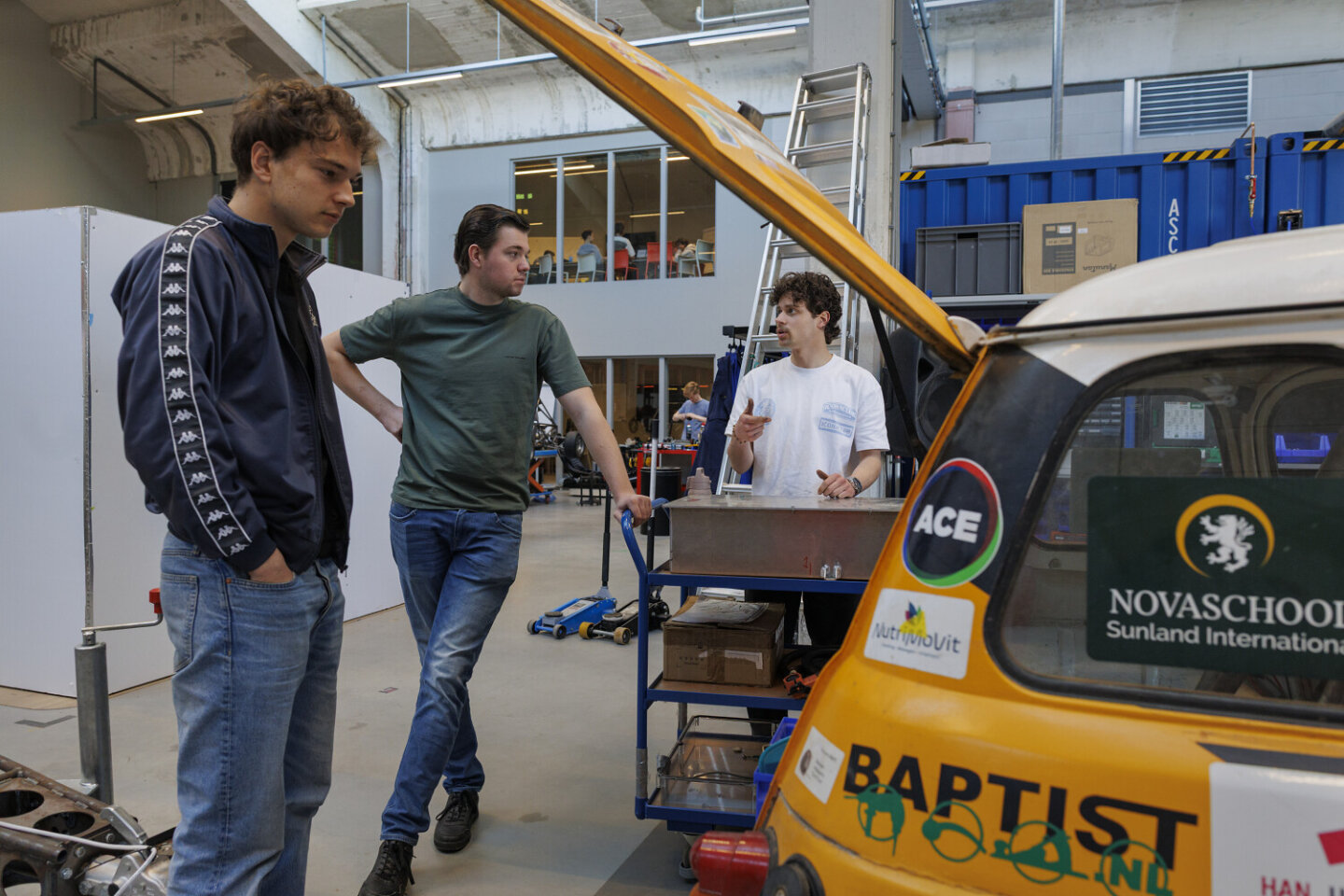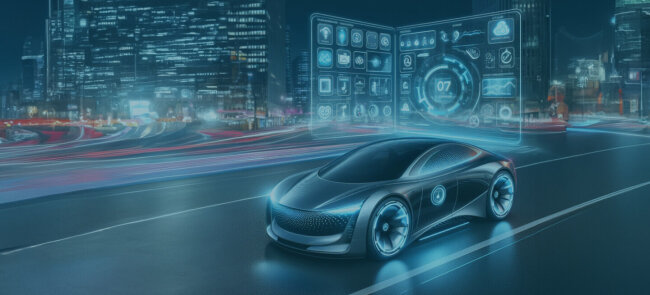ACE Mobility, short for Automotive Center of Expertise, was founded more than 11 years ago as a public-private partnership (PPP) between Dutch universities of applied sciences and the automotive industry, co-initiated by RAI Vereniging. The organization focuses sharply on societal challenges, investing in educational innovation, lifelong learning, and research & innovation. ACE Mobility operates through four main domains: Innovation & Research (R&D), Human Capital, Education & Talent Development, and Lifelong Learning.
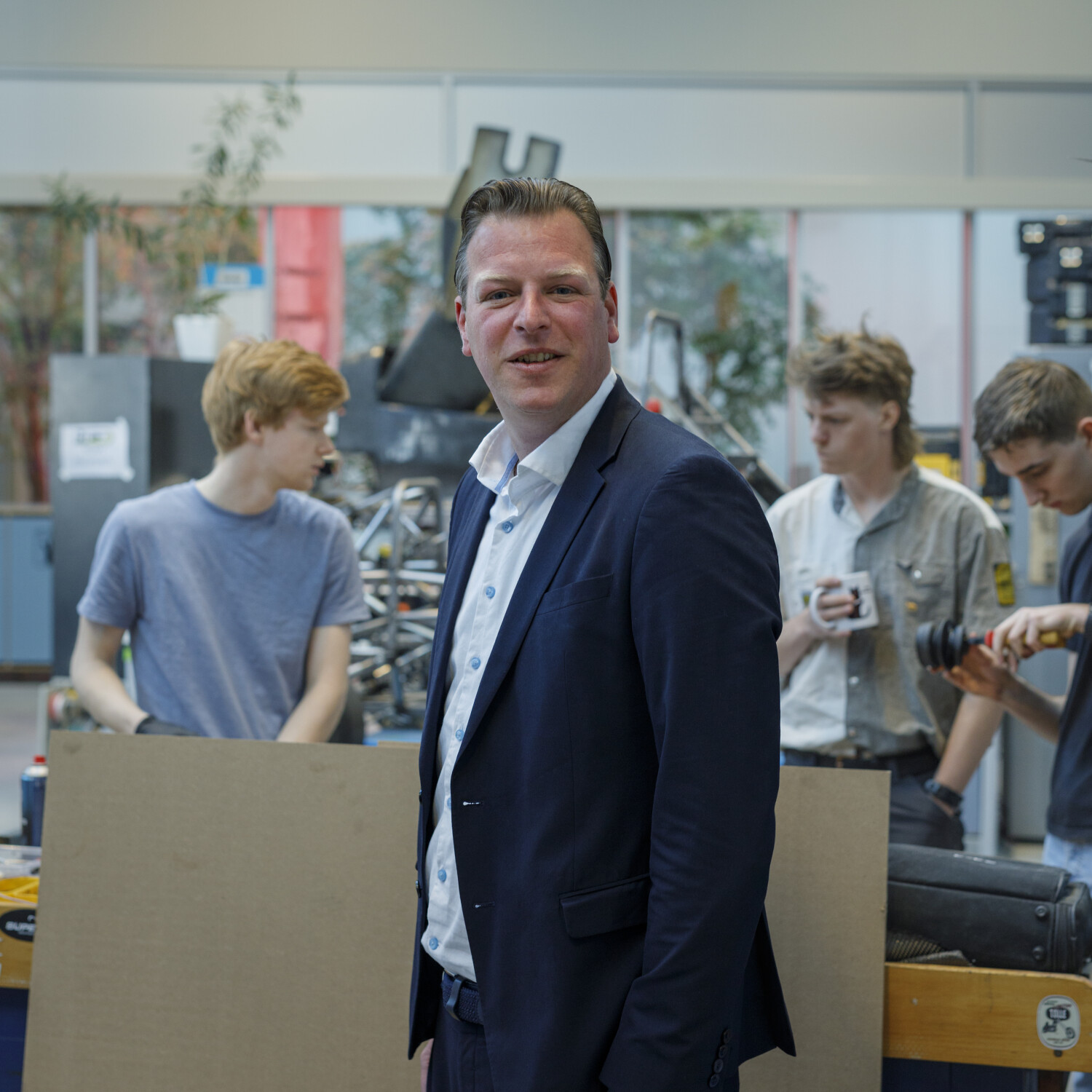
A Dual Transition
According to Van Berkel, the automotive and mobility industries are currently undergoing a dual transition, toward sustainability and digitalization.
“As an intermediary organization, we move with these developments. In recent years, ACE Mobility has increasingly focused on the Human Capital domain, where we aim to play a leading role at the intersection of education and labour market innovation.”
Human Capital Challenges
Van Berkel notes that ACE Mobility is involved in numerous initiatives representing over one billion euros in innovation investments, a significant share of which relates to Human Capital.
“This includes the setup of new environments and pilot production lines, which all incorporate targeted Human Capital investments. Within this scope, ACE Mobility is responsible for more than €50 million in Human Capital activities.”
To illustrate the challenges, Van Berkel explains that within the battery domain alone, an ecosystem must be developed capable of filling 10,000 jobs and supporting many times that number in re- and upskilling.
“That requires collaboration across the entire Human Capital chain. Especially when you consider that, for example, the adjacent field of charging infrastructure will also need around 14,000 FTEs.”
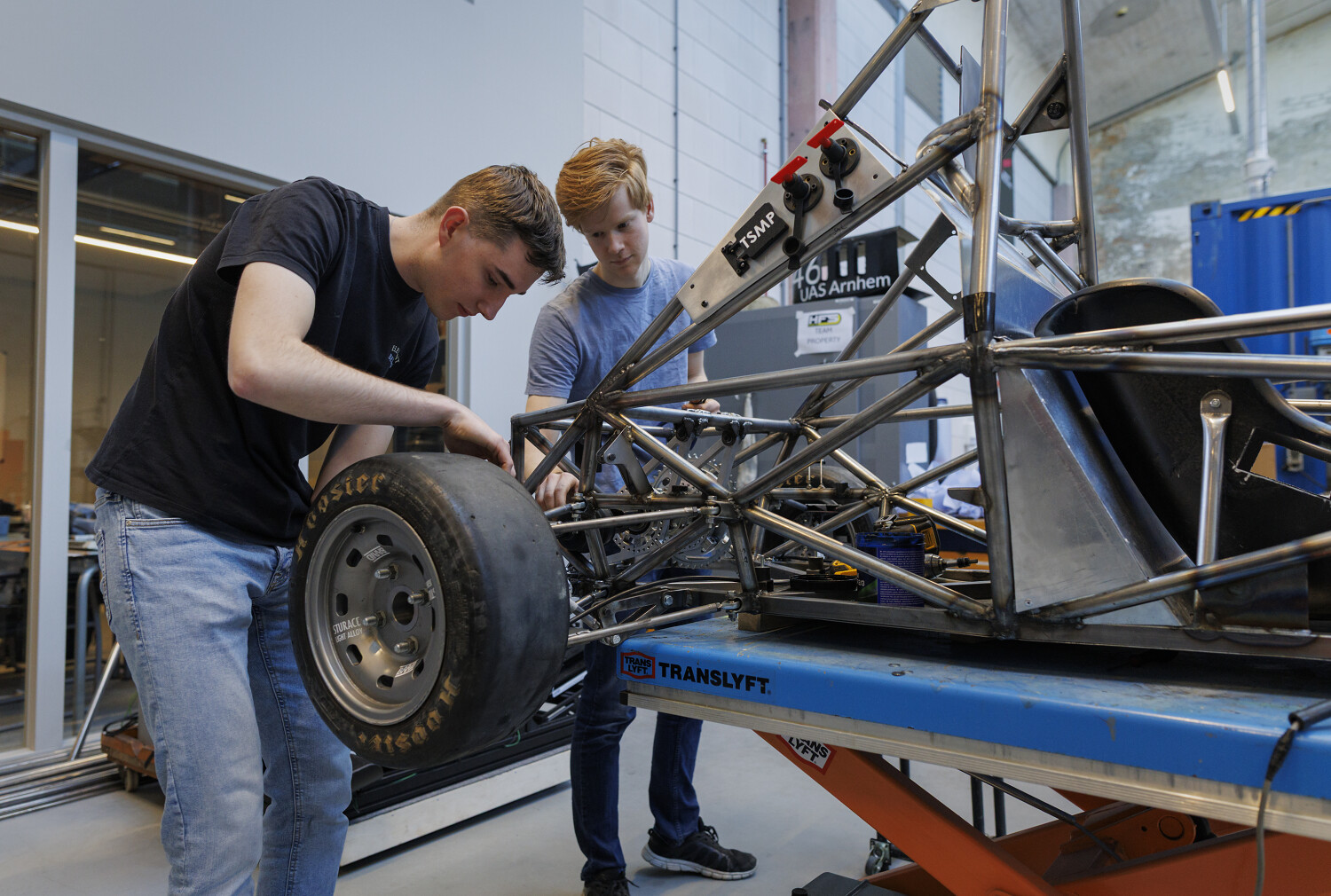
Educational Package on Battery Technology
For this reason, ACE Mobility was asked several years ago to develop a methodological approach to scaling up not only battery technology in the Netherlands - aligned with the National Battery Strategy - but also other domains such as Cooperative, Connected and Automated Mobility (CCAM), Hydrogen, and Sustainable Electronics.
“The goal of our Human Capital Agenda is to educate and continuously upskill enough qualified professionals to keep pace with technological innovation. Our ecosystem approach, bringing together a broad variety of partners, enables knowledge sharing and the implementation of concrete interventions. This not only addresses the shortage of technical talent but also strengthens the sector’s sustainable growth and innovation capacity.”
A tangible example is the development of a complete MBO (vocational level 3–4) curriculum on basic battery technology.
“This provides a much-needed foundational training programme for both students and professionals, which previously did not exist. The course material will soon be available through a dedicated transition hub at the Automotive Campus, accessible to MBO institutions and lifelong learning initiatives.”
National Growth Fund Contribution
In the third round of the National Growth Fund, the Battery Competence Cluster – NL (BCC-NL) submitted a proposal to strengthen the Dutch battery value chain, where companies and knowledge institutions jointly develop and commercialize sustainable battery solutions.
“This is vital for making mobility more sustainable, boosting economic development, and enhancing the Netherlands’ international position,” Van Berkel says.
Within this proposal, ACE Mobility, together with Brainport Development, developed the Human Capital work package, aimed at attracting, developing, and retaining the technical talent needed to achieve the programme’s objectives.
“The programme takes a long-term and integrated approach, including training programmes for up- and reskilling, traineeships for new talent, and HR guidance for start-ups in the battery sector, learning to navigate HR challenges. One thing is certain: there’s no simple or quick solution.”
Modern Leadership Essential
All possible solutions to address labour market shortages in the battery sector are on the table, Van Berkel emphasizes.
“Education must better align with industry demand, but retaining talent is equally crucial. That doesn’t happen automatically; it requires modern leadership. Setting up action plans with interventions is not enough. If employers don’t adapt, it won’t work. That’s why we guide companies in HR innovation and modern leadership, embracing themes such as lifelong learning and development, remote working, and part-time positions. These are key to retaining people longer. Our role is to help the industry become strong, agile, and future-proof.”
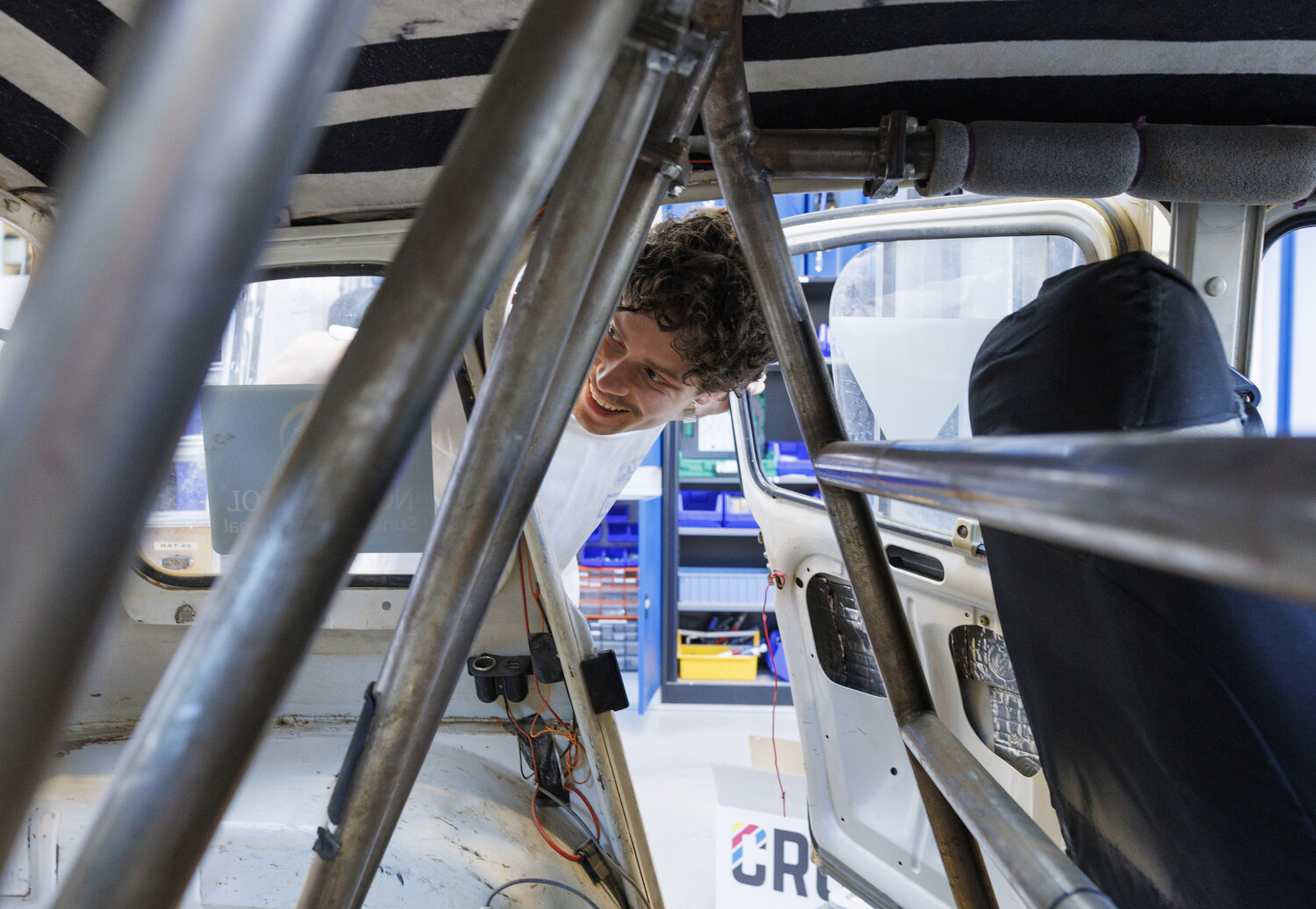
VDL Defense Factory as an Example
Van Berkel explains that maintaining a high-value manufacturing industry in the Netherlands requires structural change.
“Ad hoc solutions are no longer sufficient; long-term thinking must prevail. Filling vacancies in the short term cannot be the only focus. We must look beyond the immediate to build a sustainable talent pipeline for the future.”
He cites VDL Nedcar as a good example of flexibility in response to geopolitical and demographic shifts. The largely vacant car factory in Born is now becoming a flagship of accelerated collaboration between the Dutch Ministry of Defence and other industries.
“This is only possible because VDL Nedcar possesses the right expertise, knowledge, competencies, capacity, and infrastructure to deliver high-quality production. Their quick adaptation ensures they maintain their societal value. We see similar transitions happening across the mobility sector, and ACE Mobility will continue to support these developments.”
Training Across the Entire Value Chain
As new battery technologies emerge, other areas become increasingly important.
“A growing number of vehicles with advanced battery systems brings new challenges, for example, in recycling and end-of-life processing,” says Van Berkel. “We’ll need targeted retraining programmes for these areas as well. The entire value chain must evolve, covering technical skills, but also related areas such as infrastructure, logistics, safety, and regulations. Everyone must move forward together to maintain our industry’s strong position.”
International Collaboration
Van Berkel also stresses the importance of maintaining a strong international role within the value chain and developing complementary, applicable solutions for the Netherlands.
“The battery sector doesn’t operate in isolation. Continuous international collaboration in Europe, across education, research, and training, is essential. That’s where our competitiveness lies: in the adaptability and resilience of our industry.”
To strengthen international cooperation, ACE Mobility and RAI Automotive Industry NL recently formalized their partnership through a Memorandum of Understanding (MoU). On both national and international levels, the organizations collaborate by jointly representing the Dutch mobility sector at major trade fairs and conferences, and by participating together in consortia.
“Earlier, we already joined forces in developing the Automotive Learning Community and several initiatives emerging from the National Growth Fund, where RAI Automotive Industry NL and Brainport Development initiate mobility proposals and ACE Mobility leads the Human Capital work packages. Together, we are laying the foundation for a stronger, more resilient future for our members and partners.”
Long-Term Development
To further support long-term development in the battery sector, Van Berkel has started a PhD research project on applying the Human Capital Readiness Levels (HCRL) framework.
“The goal is to create a generic and transferable framework that connects Human Capital challenges across technological domains, aligning current and future initiatives more effectively. By defining and standardizing structures and checkpoints within Human Capital ecosystems, we can significantly increase their impact on both labour market development and technological innovation.”
He concludes:
“This system goes beyond the battery sector. It provides a broader perspective on how Human Capital investments can contribute to a sustainable and adaptable economy - where talent is optimally deployed and directed toward the needs of the future.”

